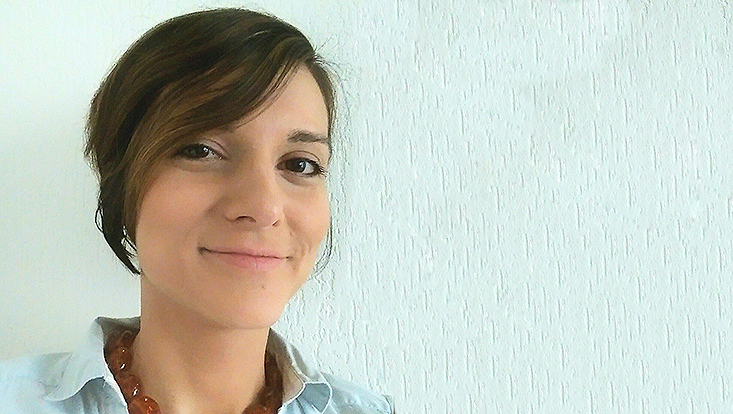Paola Pasquali: “China opens up a whole world of possibilities to you”
19 December 2017, by Internetredaktion

Photo: Pasquali
Paola Pasquali completed the “Chinese Law Taught in English” seminar at the China-EU School of Law in 2012. Later, the University of Bologna graduate gained work experience at the China Europe International Business School’s China-Africa Center in Accra, the capital of Ghana. Today, she is just about to finalise her PhD in law at Birkbeck College at the University of London.
How did your studies prepare you for your current tasks?
In my PhD thesis at Birkbeck College, I compared the so-called migration management of the European Union and China with each other. I analysed – in historical perspective – the legislation and policies on immigration of people to the EU and China as well as on internal mobility of people, which particularly in China, with hundreds of millions of migrant workers, is a huge issue. My main conclusion is that the Chinese government is more upfront about its economic approach to migration management. This appears to be different from the EU context, where humanitarian discourses and security concerns have become the two main categories through which officials frame non-EU migration.
Without the comparative legal skills and the Chinese proficiency I started to gain at the China-EU School of Law, I never could have conducted my PhD research. The “Chinese Law Taught in English” programme was my first approach to the Chinese legal system. I also started to learn Chinese right away at the China-EU School of Law – and then decided to stay longer as a Visiting PhD student, because the first six months in China really were only just a taste. After one year I could communicate in daily life, after two years I passed level 5 of the Chinese language proficiency test Hànyǔ Shuǐpíng Kǎoshì (HSK), which is an advanced level. Then I began to read Chinese law in the original language, which was a key to my doctoral research.
What is the China-EU School of Law’s biggest plus?
From my perspective, an experience at the China-EU School of Law is possibly more enriching for a European student than any experience at another European or North American university because the culture, language and customs in comparison differ much more. Studying in Beijing leads you to understand your own context better. By seeing how things are done differently in a different place, you start to reflect upon the way you do things in your own place and this opens up a whole world of possibilities to you. So for me, the experience at the China-EU School of Law worked perfectly. It was a perfect fit as an introduction to intensive studies of Chinese law, language and culture. This is by no means what all exchange students from Europe may have in mind, when considering a study period at the China-EU School of Law. Some may want to do it as a first introductory step to gain more in-depth knowledge of the Chinese context, some may simply want to gather some international experience to bring back home – whatever the case, I can absolutely recommend the China-EU School of Law to both groups.
